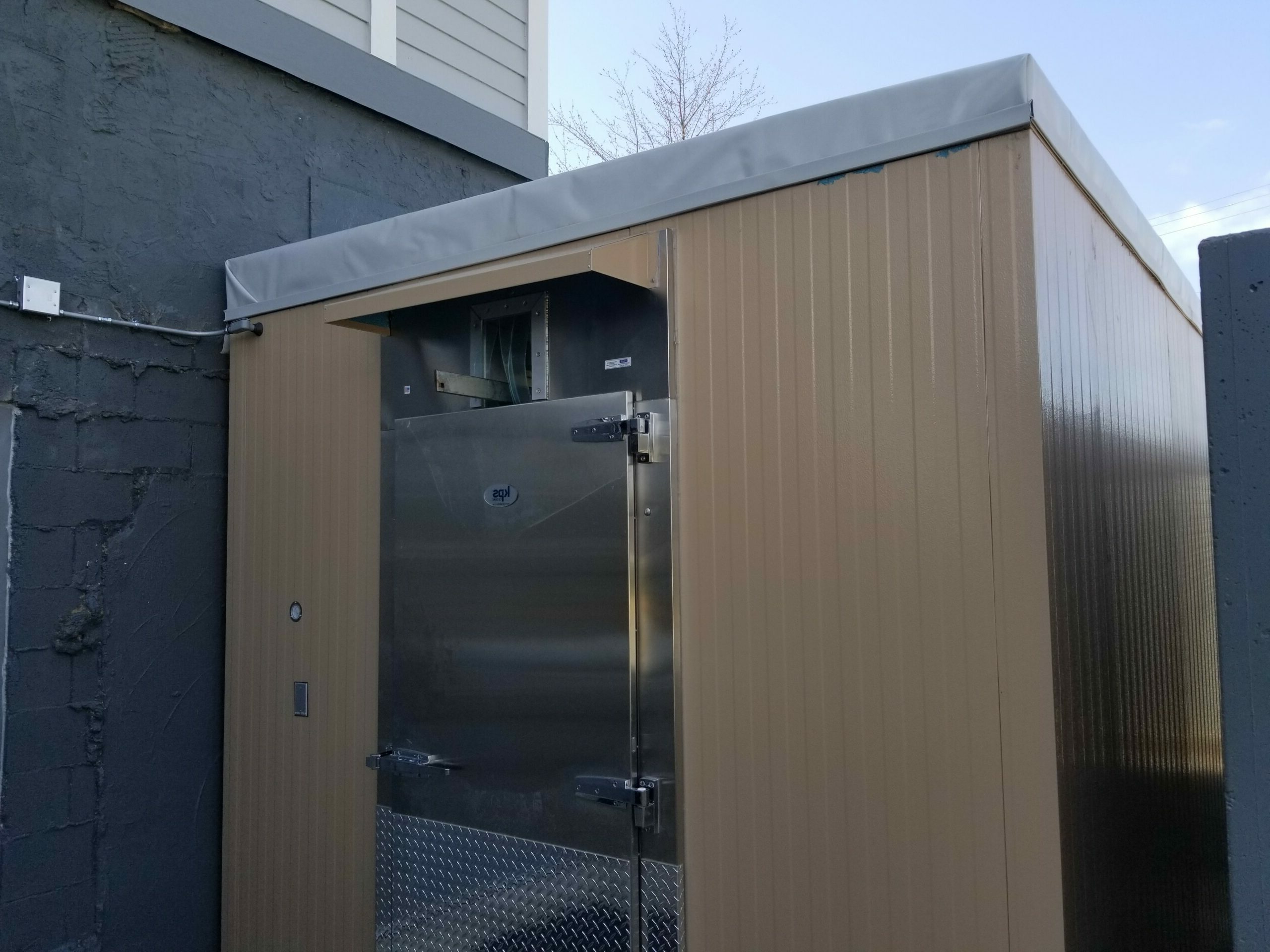When it comes to cold storage solutions, outdoor walk-in coolers and indoor walk-in coolers each offer unique advantages catering to different needs.
Outdoor walk-in coolers are designed to withstand different weather conditions while still providing additional space for cold storage without sacrificing indoor space.
Indoor walk-in coolers often referred to as simply, walk-in coolers, are more so integrated within the building ensuring easy accessibility.
While both advantages, the decision in choosing one over the other comes down to taking specific considerations into account such as environmental factors and business operations.
In this blog, we will discuss the differences between outdoor and indoor walk-in coolers to help you determine which one is the best fit for your business.
Installation and Location Of Walk-In Coolers
One of the most significant differences between outdoor and indoor coolers is the installation location.
Outdoor coolers are installed on the exterior of the building as either a standalone unit or connected to the building. For outdoor coolers the installation process requires a concrete slab to be built.
Additionally, outdoor units must be built with weather resistant materials including specific finishes. A mesa profile is often used on the metal to provide protection from outdoor conditions.
Outdoor walk-in coolers can be directly affected from harsh outdoor conditions, including rain, snow, and wind, which must be considered in the design and manufacturing process.
On the other hand, indoor walk-in coolers are installed inside the building or warehouse resulting in an extra level of protection from harsh weather but are much more limited when it comes to size and location.
Indoor walk-in are typically located in a backroom or storage area and are easily accessible from the main business area.
The size and capacity are another key difference between indoor and outdoor coolers. An advantage to outdoor walk-in coolers is they typically aren’t as limited when it comes to size and capacity. Outdoor units are often intended to provide more storage space and capacity for customers with limited internal capacity.
Outdoor units can be a great addition for businesses lacking storage space or want more room for their operations.
On the other hand, Indoor coolers are structurally limited to the size of the area located in, which makes them making them smaller in size and capacity.
Size And Capacity
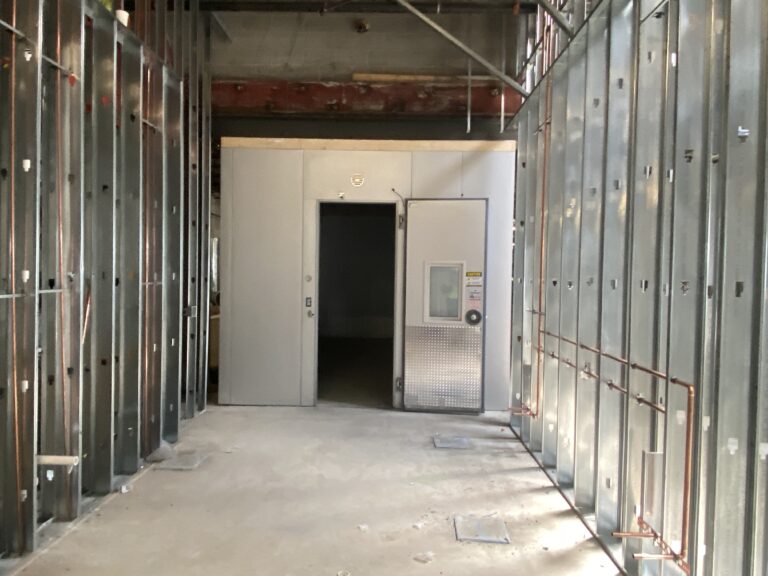
Energy Efficiency Of Walk-In Coolers
When it comes to energy efficiency, there can be a difference between outdoor and indoor walk-in coolers. Typically, Outdoor walk-in coolers require more energy to main temperature consistency. The exposure to outdoor temperatures causes the unit to use more energy to maintain the desired temperature.
On the other hand, indoor coolers are located inside the building and are not affected by outside temperatures. This means they require less energy to maintain a consistent temperature, resulting in lower energy costs.
Maintenance and repairs are another area where outdoor and indoor coolers differ. Outdoor walk-in coolers are exposed to the elements, which means they can require more frequent maintenance and repairs, depending on the area. Outdoor coolers located in geographical areas with consistently harsh weather conditions will require much more attention and maintenance as supposed to indoor coolers in the same area. From a design standpoint, the outside of the unit will typically have more cosmetic damage which can look unappealing from a customer perspective. Outdoor units should typically not be customer facing for this reason.
Indoor walk-in coolers are not exposed to the direct risk of harsh weather. However, they still require repairs and maintenance. Indoor coolers are frequently accessed by employees and often encounter issues from daily wear and tear or human errors such as leaving the doors open to long or damages from forklift traffic, etc.
Walk-In Coolers Maintenance & Repair
Maintenance and repairs are another area where outdoor and indoor coolers differ. Outdoor walk-in coolers are exposed to the elements, which means they can require more frequent maintenance and repairs, depending on the area.
Outdoor walk-in coolers located in geographical areas with consistently harsh weather conditions will require much more attention and maintenance as supposed to indoor coolers in the same area.
From a design standpoint, the outside of the unit will typically have more cosmetic damage which can look unappealing from a customer perspective. Outdoor units should typically not be customer facing for this reason.
Indoor walk-in coolers are not exposed to the direct risk of harsh weather. However, they still require repairs and maintenance.
Indoor walk-in coolers are frequently accessed by employees and often encounter issues from daily wear and tear or human errors such as leaving the doors open to long or damages from forklift traffic, etc.
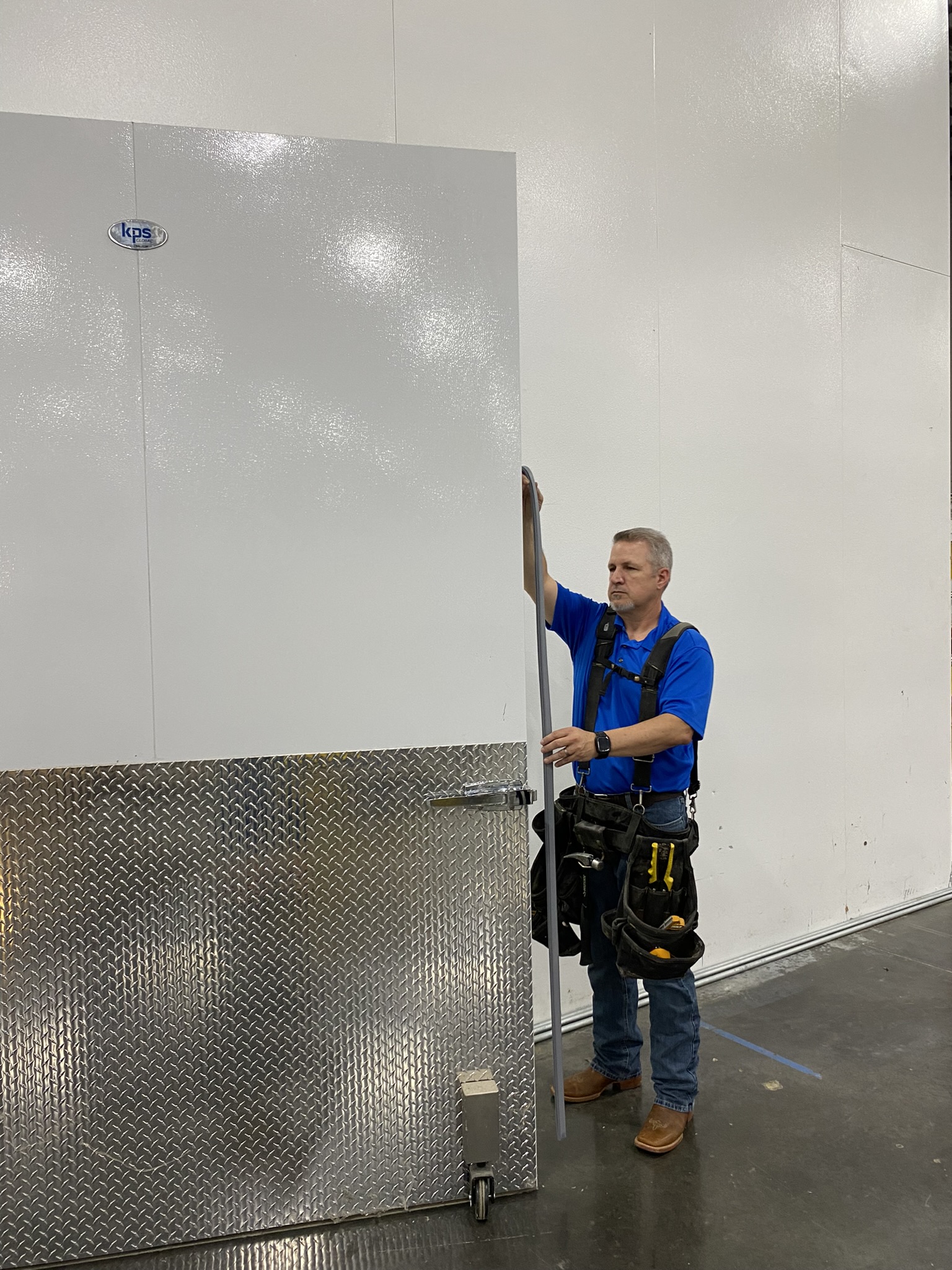
Accessibility
Accessibility is also an important factor to consider when choosing between an outdoor and indoor walk-in cooler. Outdoor walk-in coolers are located outside the building and require employees to go outside to access inventory. This can be inconvenient, especially during inclement weather.
Indoor walk-in coolers, on the other hand, are located inside the building and are easily accessible from the main business area. This makes it more convenient for employees to access inventory, especially
Indoor VS. Outdoor? What's The Right Option?
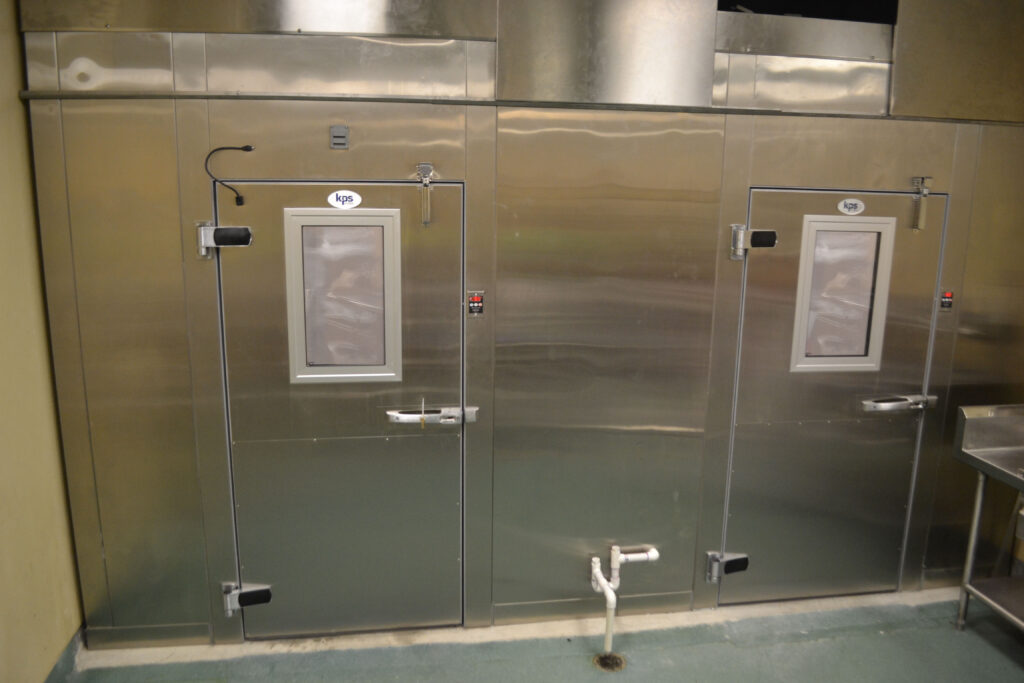
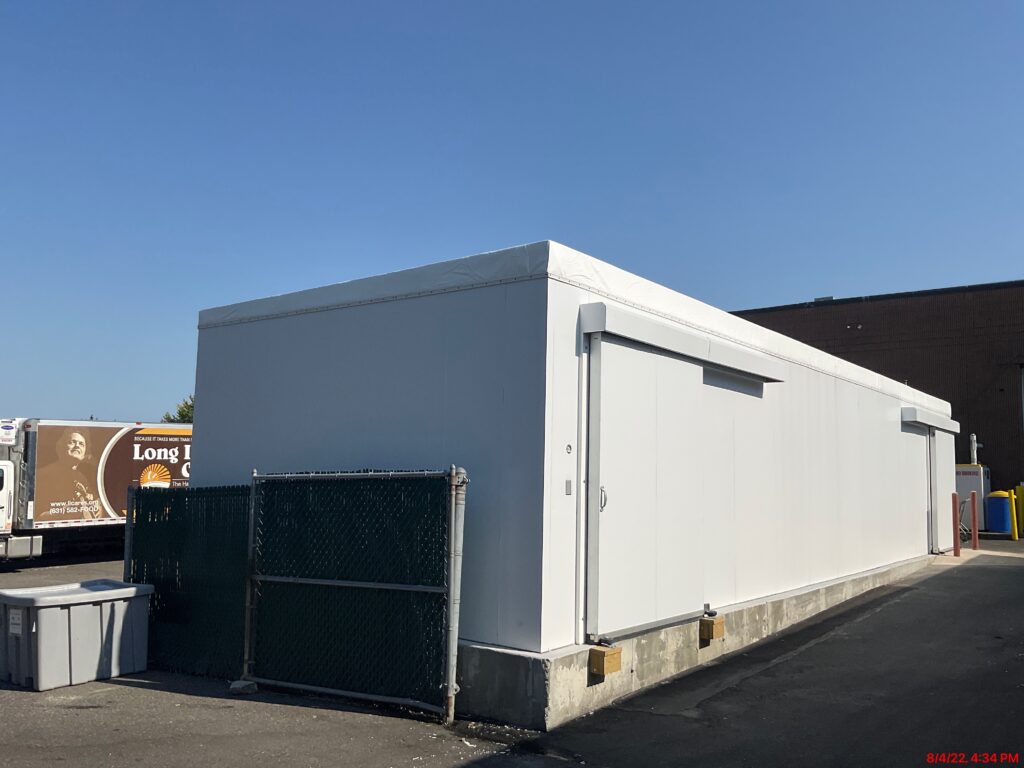
In conclusion, there are several differences between outdoor and indoor walk-in cooler and customers should consider a variety of factors before deciding which one to purchase. The right type of unit varies for each customer based on geographical location, application, and intended use. Outdoor walk-in coolers have a risk when it comes to weather but can be great for businesses with small retail space indoors or for other applications such as equipment enclosures. Indoor walk-in coolers provide more design flexibility from a customization standpoint but can lack the space and capacity that an outdoor unit provides. Ultimately, the decision to choose an outdoor or indoor walk-in cooler depends on your business’s needs, budget, and location
